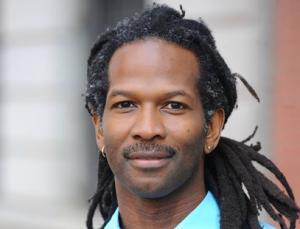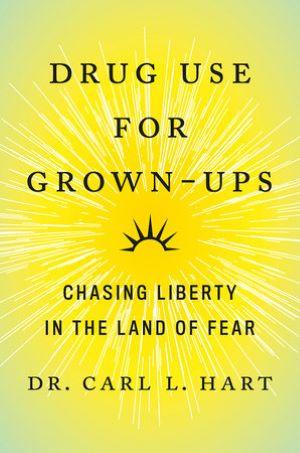A leading neuropsychopharmacologist speaks his minds about drugs.
An Idaho initiative campaign aimed at 2022 gears up, a court rules that Michigan probationers can use medical marijuana, and more.
A South Dakota court throws out the voter-approved marijuana legalization amendment, Idaho medical marijuana campaigners can begin signature-gathering for 2022, and more.
The appetite for busting pot smokers grows weaker in Fort Lauderdale and Milwaukee, Idaho could this year finally legalize hemp, and more.
South Dakota's obstinate governor continues to get in the way of marijuana legalization, a freshman Kansas state representative files a drug decriminalization bill, and more.
South Dakota's Republican attorney general won't defend the state's voter-approved marijuana legalization amendment any further, a Michigan court rules people on probation can use medical marijuana, and more.
A marijuana legalization bill moves in New Mexico, a bill to expand marijuana decriminalization advances in North Dakota, a drug decriminalization bill advances in Washington, and more.
Hawaii legislators take up marijuana reform bills, Maryland legislators take up marijuana legalization, and more.
Drug Use for Grown-Ups: Chasing Liberty in the Land of Fear, by Carl Hart (2021, Penguin Press, 290 pp., $28.00 HB)
Dr. Carl Hart is a one-man drug and drug user destigmatization machine. In his new book,
Drug Use for Grown-Ups, the Columbia University psychology professor blasts drug prohibition as both an affront to the American dream of the pursuit of happiness and as a tool of racial oppression. And he makes a strong, informed argument that recreational drug use can be, and usually is, a good thing.
You could hardly find someone more qualified to make the case. Hart has spent years in the trenches of neuropsychopharmacology research, handed out drugs (or placebos) to thousands of research subjects, published numerous scientific papers and popular articles in the field, and risen to the top of his profession along the way. And here is his bottom line:
"[O]ver my more than 25-year career, I have discovered that most drug-use scenarios cause little or no harm and that some responsible drug-scenarios are actually beneficial for human health and functioning. Even 'recreational' drugs can and do improve day-to-day living... From my own experience -- the combination of my scientific work and my personal drug use, I have learned that recreational drugs can be used safely to enhance many vital human activities."
Hart is refreshingly -- and deliberately -- open about his own recreational drug use. Given the stigmatization and persecution of people identified as "drug users," he feels that justice demands privileged partakers come out of the closet and give voice to their own, non-destructive drug use histories as a necessary remedy for that demonization. He certainly does so himself, revealing a disciplined yet curious mind most definitely not averse to sampling various substances.
Those substances include heroin, which he describes as his current favorite drug, one that he's been using episodically for years now: "There aren't many things in life that I enjoy more than a few lines by the fireplace at the end of the day... Heroin allows me to suspend the perpetual preparation for battle that goes on in my head... The world is alright with me. I'm good. I'm refreshed. I'm prepared to face another day, another faculty meeting, another obligatory function. All parties benefit."
But Hart is not quite so mellow when it comes to people and institutions he sees as helping to perpetuate overly negative depictions of various drugs or the persecution of drug users. He rips into Dr. Nora Volkow, head of the National Institutes on Drug Abuse (NIDA) over her "addiction is a brain disease" mantra and the rigid ideological control she has over research funding. He rips into journalists for uncritically and sensationally reporting salacious scientific findings about the evils of drugs that he argues are not supported by the evidence they are supposedly based on. He even calls Bernie Sanders "ignorant" (that word shows up more than a few times) for complaining that marijuana shouldn't be in the same drug schedule as "killer drugs like heroin."

Dr. Carl Hart (Columbia University)
Hart doesn't deny the potential dangers of drug use but makes the case that they are dramatically overstated. In that sense,
Drug Use for Grown-Ups is a corrective to more than a century of anti-drug propaganda. In a deep dive into opioids, for instance, he notes that most opioid overdose deaths are actually opioid/benzodiazepines/alcohol deaths, and that a large number of them are due to ignorance (there's that word again) -- in that, in the black market that currently exists, drug users do not and cannot know what exactly is in that pill or powder they purchased.
As long as we are in a prohibition regime, the least we can do is widespread drug testing for quality control, as is done at some European music festivals, Hart argues. But that's the only kind of drug testing he's down with; he calls the urine drug testing industry "parasitic," a sobriquet he also applies to the drug treatment industry.
But hang on, he's not done yet. Although he is an advocate for harm reduction practices, he has a bone to pick with the term itself: It's too damned negative! Drug use doesn't typically involve harm, he argues, but pleasure-seeking. As I pondered this, I came up with "benefit enhancement" as an upbeat alternative to harm reduction, but Hart went with "health and happiness."
And he's got a bone to pick with "psychedelic exceptionalism," the notion, dear to folks like Decriminalize Nature, that psychedelics, or better yet, "plant entheogens," are somehow "better" than dirty old drugs like meth or heroin and thus deserve to be treated differently, more gently. He also snarks at the notion that taking drugs for spiritual or religious purposes is of a higher order than taking them for fun and rebels at the notion of having a shaman or guide during a tripping session: "Some people find this comforting. I find it creepy and have never done so myself."
Drug Use for Grown-Ups is bracing, informative, and provocative contribution to the literature. Even the most ardent drug reformers and defenders would benefit from reading it and reexamining their own assumptions. Maybe Carl Hart is onto something.
back to top
An Idaho initiative campaign aimed at 2022 gears up, a court rules that Michigan probationers can use medical marijuana, and more.
NationalBiden Administration Opposes Marijuana Dispensary's Tax Fight for Supreme Court Review. In one of the first actions regarding marijuana in the Biden administration, the IRS has argued against a Denver-based dispensary, Standing Akimbo LLC, having its case heard in the US Supreme Court. The dispensary is seeking to challenge an IRS rule that business tax deductions cannot be taken by marijuana businesses because marijuana remains illegal under federal law.
Connecticut
Connecticut Bill Would Require "Labor Peace" for Marijuana Businesses. A bill now before the Labor and Public Employees Committee, HB 6377, would require that marijuana businesses enter into labor peace agreements with a union before being granted licenses. The bill would require an agreement "between a cannabis establishment and a bona fide labor organization that protects the state's interests by, at minimum, prohibiting the labor organization from engaging in picketing, work stoppages or boycotts against the cannabis establishment." Under the bill, marijuana employers would give up some rights, including the right to speak to employees about union organizing efforts.
Idaho
Idaho Campaigners Cleared to Begin Signature Gathering for 2022 Medical Marijuana Initiative. Kind Idaho, the group leading the campaign for a 2022 medical marijuana initiative, has been cleared to begin signature gathering. A 2020 signature-gathering campaign was disrupted by the coronavirus and ultimately failed to back the ballot. This move comes as a medical marijuana bill has just been introduced in the legislature and as the legislature also considers legislation that would prevent the state from legalizing any currently illicit drugs.
Michigan
Michigan Appeals Court Upholds Right of People on Probation to Use Medical Marijuana. The state Court of Appeals has ruled that judges cannot prevent people from using medical marijuana as a condition of probation. The ruling came after a Traverse County district court judge barred Michael Thue from using medical marijuana while on probation, saying it was a policy of circuit court judges in the county. But the appeals court ruled that anyone who has a state-issued medical marijuana card is immune to such penalties.
South Dakota
South Dakota Governor Seeks Delay in Implementing Medical Marijuana Initiative. Gov. Kristi Noem (R) said Wednesday that while she will not stand in the way of implementing a voter-approved medical marijuana initiative, the state will need more time to get the program up and running. "We are working diligently to get IM 26 implemented safely and correctly," Noem said. "The feasibility of getting this program up and running well will take additional time." Under state law, voter-approved ballot measures are supposed to take effect the following July 1, but Noem and the state's Republican legislative leadership say they will delay implementation until July 1, 2022.
back to top
A South Dakota court throws out the voter-approved marijuana legalization amendment, Idaho medical marijuana campaigners can begin signature-gathering for 2022, and more.

A bill to requiring reporting on COVID in federal prisons is about to be filed. (Creative Commons)
New National Poll Has Three-Fifths Saying Marijuana Legalization is a "Good Idea." A new national survey from Emerson College Polling has 61% of respondents saying marijuana legalization is a "good idea." The poll asked about various issues -- new pathways for citizenship, raising the minimum wage, for example -- but none had as much support as marijuana legalization.
Connecticut Bill Would Require "Labor Peace" for Marijuana Businesses. A bill now before the Labor and Public Employees Committee, HB 6377, would require that marijuana businesses enter into labor peace agreements with a union before being granted licenses. The bill would require an agreement "between a cannabis establishment and a bona fide labor organization that protects the state's interests by, at minimum, prohibiting the labor organization from engaging in picketing, work stoppages or boycotts against the cannabis establishment." Under the bill, marijuana employers would give up some rights, including the right to speak to employees about union organizing efforts.
South Dakota Judge Rejects Amendment Legalizing Marijuana. A circuit court judge in Pierre appointed by marijuana legalization opponent Gov. Kristi Noem (R) has thrown out the constitutional amendment legalizing marijuana that was approved by 54% of the voters in November. The judge held that the measure violated the state's requirement that constitutional amendments deal with just one subject and would have created broad changes to state government. Amendment sponsors led by former US Attorney Brendan Johnson said they would appeal the ruling to the state Supreme Court.
Medical Marijuana
Idaho Campaigners Cleared to Begin Signature Gathering for 2022 Medical Marijuana Initiative. Kind Idaho, the group leading the campaign for a 2022 medical marijuana initiative, has been cleared to begin signature gathering. A 2020 signature-gathering campaign was disrupted by the coronavirus and ultimately failed to back the ballot. This move comes as a medical marijuana bill has just been introduced in the legislature and as the legislature also considers legislation that would prevent the state from legalizing any currently illicit drugs.
South Dakota Governor Seeks Delay in Implementing Medical Marijuana Initiative. Gov. Kristi Noem (R) said Wednesday that while she will not stand in the way of implementing a voter-approved medical marijuana initiative, the state will need more time to get the program up and running. "We are working diligently to get IM 26 implemented safely and correctly," Noem said. "The feasibility of getting this program up and running well will take additional time." Under state law, voter-approved ballot measures are supposed to take effect the following July 1, but Noem and the state's Republican legislative leadership say they will delay implementation until July 1, 2022.
Incarceration
Progressive Lawmakers Will Reintroduce COVID-19 in Corrections Data Transparency Act. United States Senators Elizabeth Warren (D-MA), Senators Patty Murray (D-WA) and Cory Booker (D-NJ), along with Congresswoman Ayanna Pressley (D-MA) and Congresswoman Sylvia Garcia (D-TX) will reintroduce of the COVID-19 in Corrections Data Transparency Act, bicameral legislation that would require the Federal Bureau of Prisons (BOP), the United States Marshals Service (USMS), and state governments to collect and publicly report detailed data about COVID-19 cases, hospitalizations, deaths, and vaccinations in federal, state, and local correctional facilities. "As a result of their confinement, incarcerated people are at increased risk of contracting COVID-19, and reports show that COVID-19 has spread like wildfire in correctional facilities across the country. This bill takes a necessary step towards containing the pandemic and supporting the health and safety of incarcerated individuals, correctional staff, and the general public by strengthening data collection, reporting, and transparency," Senator Warren said.
Sentencing Policy
Illinois Drug Defelonization Bill Coming. Criminal justice reform advocates were thwarted in getting a drug defelonization bill passed in 2019, and now they are preparing to try again. The proposed bill would not only defelonize drug possession, it would also seek to divert drug users from the criminal justice system.
back to top
The appetite for busting pot smokers grows weaker in Fort Lauderdale and Milwaukee, Idaho could this year finally legalize hemp, and more.

Baltimore police are reforming some of their stop and search practices. (Pixabay)
Connecticut Governor Includes Marijuana Legalization Plan in Budget Proposal. Gov. Ned Lamont (D) on Wednesday released his budget request, which includes a plan to legalize marijuana. His plan would involve creating a "comprehensive framework for the cultivation, manufacture, sale, possession, use, and taxation of cannabis that prioritizes public health, public safety, and social justice," Lamont said. "The proposal builds on the significant work that the Legislature has done on adult-use cannabis in recent sessions and ensures alignment with the approaches pursued by regional states," a summary of the plan says.
Florida's Broward County Gives Up on Misdemeanor Pot Prosecutions. Broward County (Ft. Lauderdale) State Attorney Harold Pryor has told county police agencies not to bother referring misdemeanor marijuana possession cases for prosecution. "Prosecuting these cases has no public safety value and is a costly and counterproductive use of limited resources," Pryor wrote in a memo to the law enforcement agencies. He asked them to refer violators to drug-treatment programs instead of the criminal justice system. Possession of up to 20 grams is a misdemeanor under state law. Neighboring Miami-Dade County enacted a similar policy six months ago. Dade and Broward are the state's two most populous counties.
Milwaukee County Board to Consider $1 Fine for Pot Possession. Board Supervisor Sylvia Ortiz-Velez has proposed an ordinance that would make the maximum penalty for possession of up to 25 grams of marijuana a $1 fine. Currently, possession is punished with fines of between $250 and $500. The board's Judiciary Committee will take up the ordinance on March 11.
Hemp
Idaho House Committee Files Hemp Bill. Acting on the behest of the state Farm Bureau, the House Agriculture Committee voted unanimously Wednesday to file legislation to legalize industrial hemp in the state -- the only state yet to do so. The committee vote sets the stage for a full hearing on the bill, which agriculture leaders say they hope will end years of debate on legalizing the crop.
Drug Testing
Utah Bill Would Ban Hair Follicle Drug Tests in Child Welfare Cases. Rep. Christine Watkins (R-Price) has filed House Bill 73, which would ban the use of hair follicle drug tests in child welfare cases. "It discriminates against people with dark hair," she said in a House Judiciary Committee hearing Tuesday. "This is very, very disturbing," Watkins said. "Melanin in dark hair binds with the drugs for a longer time." That means Black and Hispanic parents disproportionately test positive in those tests, she added. The bill has the support of the state Department of Child and Family Services, which said it had been moving away from using the tests.
Law Enforcement
Baltimore Police Unveil New Stop and Search Policies to Comply with Federal Consent Decree. Police Commissioner Michael Harrison announced Wednesday that the department has implemented a new "stops, searches and arrests" policy as the department seeks to comply with a federal consent decree and eliminate unconstitutional interactions with the public. Under the policy, officers will be trained in what constitutes "reasonable, articulable suspicion" for stopping a citizen. The new policy makes clear that someone fleeing when he sees police is not an adequate reason to stop and investigate him. Police had frequently resorted to "jump outs at corners," jumping out of their vehicles at corners known for drug trafficking and detaining anyone who ran away. No more.
back to top
South Dakota's obstinate governor continues to get in the way of marijuana legalization, a freshman Kansas state representative files a drug decriminalization bill, and more.

Pills, pills, pills. (Pixabay)
Kentucky Marijuana Legalization Bill Filed. Rep. Rachel Roberts (D-Campbell County) has filed a marijuana legalization bill, House Bill 467. The bill would legalize the possession of up to an ounce, provide free expungement of marijuana-related offenses, and dedicate up to 25% of the state's marijuana tax revenues to funding addiction treatment. Personal cultivation of up to five plants would be allowed but would require a $250 permit.
North Carolina Poll Has Majority Support for Marijuana Legalization. An Elon University poll released Thursday has support for marijuana legalization at 54%, with 34% opposed. That's a big swing in favor of legalization since 2017, when another Elon University poll had 51% opposed.
South Dakota Bill to Expunge Some Marijuana Convictions Advances. The Senate Judiciary Committee voted Thursday to approve Senate Bill 141, which would expunge some misdemeanor marijuana convictions from background checks. The bill would provide for the automatic expungement of marijuana possession convictions from public background reports. It still faces a Senate floor vote and action in the House.
South Dakota Governor Likely to Veto Any Marijuana Legalization Bills This Year. Gov. Kristi Noem (R), who has already moved to invalidate a voter-approved marijuana legalization initiative, said Thursday she would probably veto any effort to achieve legalization through the legislature. She said at a news conference she would "not be inclined" to sign such a bill. Some legislators have indicated support for a legalization bill, saying it would reflect the will of the voters.
Virginia Marijuana Legalization Effort Advances. With both chambers having already approved marijuana legalization bills last week, the House General Laws Committee this week approved Substitute Senate Bill 1406, which amends the Senate bill to conform with the House's legalization bill. The Senate bill had allowed localities to opt-out of retail marijuana sales, the House bill doesn't.
Heroin and Prescription Opioids
Drug Companies Seek Billions in Tax Deductions from Opioid Settlement. A major pharmaceutical company and three drug distribution companies who have agreed to pay $26 billion to settle claims related to their role in stoking the opioid epidemic are now seeking to write off some of those costs from their taxes and pocket about $1 billion each. The companies are drug maker Johnson & Johnson and distributors Cardinal Health, Amerisource-Bergen, and McKesson.
Psychedelics
Texas Bill to Study Therapeutic Potential of Psychedelics Filed. Rep. Alex Dominguez (D-Brownsville) has filed a bill, HB 1802, that would mandate a state study of the therapeutic potential of psilocybin, MDMA and ketamine in the treatment of certain mental health conditions. The Department of State Health Services would conduct the study along with the Texas Medical Board and issue a report by December 2022.
Drug Policy
Kansas Drug Decriminalization Bill Filed. Rep. Aaron Coleman (D-Kansas City), a 20-year-old freshman legislator, has filed a bill to decriminalize the possession of personal use amounts of illicit drugs. HB 2288 would make drug possession a civil offense punishable by a fine of $100, but it would also create the offense of "failure to comply with drug abuse treatment." The bill is currently before the House Committee on Corrections and Juvenile Justice.
back to top
South Dakota's Republican attorney general won't defend the state's voter-approved marijuana legalization amendment any further, a Michigan court rules people on probation can use medical marijuana, and more.

Meth is making big bucks for Asian crime syndicates, the UN Office on Drugs and Crime reports. (DEA)
Biden Administration Opposes Marijuana Dispensary's Tax Fight for Supreme Court Review. In one of the first actions regarding marijuana in the Biden administration, the IRS has argued against a Denver-based dispensary, Standing Akimbo LLC, having its case heard in the US Supreme Court. The dispensary is seeking to challenge an IRS rule that business tax deductions cannot be taken by marijuana businesses because marijuana remains illegal under federal law.
Delaware Marijuana Legalization Bill Coming Soon. State Rep Ed Osienski (D-Newark) says he plans to submit a marijuana legalization bill by the time lawmakers return from their February break on March 9 and that he is optimistic about its prospects. "It's close, it's close," he said. "We're talking one or two votes" away from approval in the House." Gov. John Carney (D) has consistently opposed legalization, but Osienski is suggesting Carney could let the bill become law without signing it.
South Dakota Attorney General Will Not Join Appeal of Ruling That Marijuana Legalization Amendment Is Unconstitutional. Although the attorney general's office generally defends state laws when they are challenged in court, SD Attorney General Jason Ravnsborg's (R) office will not help appeal a state judge's ruling that the marijuana legalization amendment passed by voters last November is unconstitutional. Ravnsborg's boss, Gov. Kristi Noem (R) opposes marijuana legalization. A deputy attorney general defended the amendment in lower court, and Ravnsborg's office says that satisfies the state law's requirements. An appeal to the state Supreme Court by attorneys associated with the campaign is ongoing.
(The South Dakota code states that ""... the attorney general shall... appear for the state and prosecute and defend all actions and proceedings, civil or criminal, in the Supreme Court, in which the state shall be interested as a party.")
Medical Marijuana
Michigan Appeals Court Upholds Right of People on Probation to Use Medical Marijuana. The state Court of Appeals has ruled that judges cannot prevent people from using medical marijuana as a condition of probation. The ruling came after a Traverse County district court judge barred Michael Thue from using medical marijuana while on probation, saying it was a policy of circuit court judges in the county. But the appeals court ruled that anyone who has a state-issued medical marijuana card is immune to such penalties.
Criminal Justice
Key Senate Judiciary Subcommittee Gets Booker, Cotton as Chair, Ranking Member. The Senate Judiciary Committee announced Sunday that the Subcommittee on Criminal Justice and Counterterrorism, where issues extremely relevant to drug and sentencing policy are the focus, will be chaired Senator Cory Booker (D-NJ), with Senator Tom Cotton (R-AR) named ranking member. Booker is a criminal justice and drug law reform stalwart; Cotton is one of the most regressive members of the Senate on criminal justice.
International
UNODC Reports That Myanmar Opium Production Drops While Meth Surges. A UN Office on Drugs and Crime (UNODC) report released last Thursday finds that opium production has dropped in Myanmar, the world's second-larges poppy producer after Afghanistan has dropped to around 405 metric tons, about half the amount recorded in 2013. Instead, the Golden Triangle drug trade is now dominated by methamphetamine production. "Opium production is down 11 to 12% on the previous year," said Jeremy Douglas, UNODC Southeast Asia and the Pacific Regional representative. "This decline is intimately linked to the surge of synthetic drugs."
back to top
A marijuana legalization bill moves in New Mexico, a bill to expand marijuana decriminalization advances in North Dakota, a drug decriminalization bill advances in Washington, and more.

Gov. Cuomo's plan to legalize marijuana faces an alternative in the NY legislature. (Creative Commons)
New Mexico Marijuana Legalization Bill Wins Committee Vote. The House Health and Human Services Committee voted on Monday to approve House Bill 12, one of four marijuana legalization bills filed in the state this year. In addition to setting up a system of taxed and regulated marijuana sales, the bill would lift some restrictions on the state's medical marijuana program and some limits on the number of plants producers can grow. The bill now goes before a tax policy committee before heading for a House floor vote.
New York Governor Says He Will Amend Marijuana Legalization Plan. Gov. Andrew Cuomo (D) said Monday he will amend his marijuana legalization proposal after leading legislators and marijuana reform advocates harshly criticized his original proposal. "I'm sending an amended bill. Legalizing recreational marijuana is something we've tried to do for several years," the governor said. "It is overdue in my opinion -- you have people who are incarcerated for crimes that, frankly, they shouldn't have a record on." Cuomo said he and lawmakers "don't have an agreement yet," but "we're making progress." Critics have charged that Cuomo is too concerned with revenues and not concerned enough with social equity provisions.
Drug Policy Alliance Reacts to Cuomo Amendment Message. The Drug Policy Alliance released the following statement on Cuomo's move: "After advocates highlighted shortcomings in Gov. Cuomo's marijuana legalization plan, the Governor has announced amendments to his proposal," said Melissa Moore, New York State Director of the Drug Policy Alliance and member of Start SMART NY Coalition (Sensible Marijuana Access through Regulated Trade). "By reducing criminal penalties and allowing marijuana delivery services, the Governor has taken steps to address decades of disparate marijuana criminalization. There's no question this shift comes in response to powerful organizing for marijuana justice across the state and in the Legislature. While these changes are a move in the right direction, they are not a substitute for the more comprehensive Marijuana Reform and Taxation Act (MRTA) (Senate Bill 854), which remains the gold standard reform bill in the Legislature. That must be the starting point as it has stronger equity and community reinvestment provisions and a more balanced governance structure for the Office of Cannabis Management than the Governor's proposal. We urge its swift passage to secure justice, jobs, equity, and true community investment for millions of New Yorkers."
North Dakota Marijuana Decriminalization Bill Advances. A bill to expand marijuana decriminalization was approved by the House Judiciary Committee on Tuesday. Under current state law, possession of a half-ounce or less is an infraction punishable by a fine of up to $1,000. This bill would make possession of up to an ounce an infraction punishable by a fine of no more than $50. The bill would also make possession of up to 250 grams an infraction with a higher fine.
Drug Policy
Washington Drug Decriminalization Bill Wins Committee Vote. A bill to decriminalize drug possession and expand drug treatment, House Bill 1499, was approved by the House Public Safety Committee on Monday. The bill now heads to the House Appropriations Committee.
back to top
Hawaii legislators take up marijuana reform bills, Maryland legislators take up marijuana legalization, and more.

Fentanyl and its analogues are the object of a harsh new drug sentencing proposal in Arizona. (DEA)
Hawaii Marijuana Legalization Bill Advances. The Senate Public Safety, Intergovernmental and Military Affairs Committee voted on Tuesday to approve a marijuana legalization bill, Senate Bill 767. It would legalize possession of one ounce of marijuana or less by anyone who is 21 years old or older.
Hawaii Marijuana Decriminalization Bill Advances. The Senate Committee on Public Safety, Intergovernmental, and Military Affairs also voted on Tuesday to approve Senate Bill 758 would increase from 3 grams to 1 ounce the minimum amount of marijuana that a defendant must possess to be charged with a petty misdemeanor. It would also permit persons previously convicted of possessing 1 ounce or less of marijuana to have the conviction expunged from their criminal record.
Maryland Legislators Hold First Committee Hearing on Marijuana Legalization. The House Judiciary Committee held a hearing Tuesday on a marijuana legalization bill, House Bill 32. No vote was taken. Another marijuana legalization bill, Senate Bill 708, is set to be heard in committee on March 4. HB 32 would legalize up to four ounces of pot by adults, allow home cultivation, allow an unlimited number of microbusiness licenses. That is the main difference with SB 708.
Sentencing Policy
Arizona Bill Would Charge Those Who Provide Drugs Linked to Overdoses with Murder. People who sell or share drugs linked to overdose deaths could face as much as 25 years in prison under a measure, House Bill 2779, that would create the crime of "drug trafficking homicide." The bill would also make people convicted under the charge ineligible for probation or early release. And it would create tougher mandatory minimum sentences for people caught selling or even possessing small amounts of heroin, fentanyl, and fentanyl analogues.
back to top








